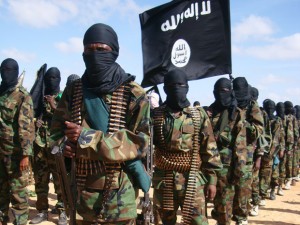U.S. forces raid on Somalia, Libya raises questions
 The attack by U.S. special forces on terrorist targets in north Africa over the weekend raises many questions about the U.S’s military jurisdiction and the security services of these nations.
The attack by U.S. special forces on terrorist targets in north Africa over the weekend raises many questions about the U.S’s military jurisdiction and the security services of these nations.
On Saturday, U.S. Navy SEALS, U.S. Army delta force and the F.B.I Hostage Rescue Team carried out two almost simultaneous attacks in Libya and Somalia.
The goal of the earlier attack on a compound in Tripoli was to capture a top Al Qaeda operative known as Abu Anas al-Liby or Nazh al-Ragye. He is wanted in connection with several terrorist plots including the 1998 bombing of U.S. embassies in Kenya and Tanzania.
According to eye witness reports, the suspect was drugged and put into a van which sped off. U.S. officials are yet to reveal the actual location he is being kept. However, many experts say he is probably being held on a U.S. warship or in the facility of one of her allies nearby. Officials say he will eventually be arraigned before a federal courthouse in New York City.
The other attack, only a few hours away from the first, was on a compound in Barawe, southern Somalia. The goal of this attack by Navy SEALS was to capture a top member of al Shabab who has been listed as ‘wanted’ for many years. Ikrima or Abdikadir Mohamed Abdikadir is reported to be the mastermind behind many terrorist attacks and is closely associated with two late top Al Qaeda operatives, Harun Fazul and Saleh Nabhan.
According to official reports, the two dozen Navy SEALS had the target in sight before they were discovered by a member of the terrorists who had come out to smoke a cigarette. The terrorist blew their cover, leading to an intense gun battle which lasted close to 20 minutes. At the end of the shoot out, about 7 terrorists are estimated to have been killed. U.S. authorities say the Navy SEALS retreated in order to prevent injuries to civilians. Although the terrorists claimed to have shot and injured at least one of the U.S. forces, officials claim no one was injured.
It wasn’t exactly clear if the governments of these nations were informed of the attacks prior to its occurrence. But the fact that these attacks closely mirrors the attack in Pakistan about two years ago to kill Osama bin Laden has been noted by many observers.
According to U.S. authorities, the attacks are the result of many months of gathering intelligence on the activities of both suspects. Therefore it isn’t clear why local forces were exempted from the attack.
The U.S. government has come under severe criticisms in the past few months for its use of drones to target suspects. According to the critics, this method leaves no chance of giving the suspects a fair trial. These complaints reportedly prompted the decision by U.S. authorities to change the way attacks of this nature are carried out. But the fact that the raids on Saturday were carried out by only U.S forces leaves President Obama’s promise to include local security forces in attacks of this nature in question.
At first the Libyan Prime Minister Ali Zeidan described the raid as “kidnapping.” He added that his government had contacted U.S. authorities and were waiting for a response.
On the other side, U.S Secretary of State, John Kerry informed the press that the Libyan government had indeed been notified of the attack. However, he failed to say when they were notified or explain why Libyan forces were not part of the attack. It is unclear if the security forces behind the abduction of al-Liby were natives of Libya. But in an interview al-Liby’s son reported that the soldiers had “Libyan look and Libyan accents.”
When asked if his country had been informed of the attack, the Somali Prime Minister Abdi Farah Shirdon said his country’s cooperation with the U.S. to fight terrorists wasn’t a secret. He said his government would continue to cooperate with its neighbours and the world in their fight against the spread of Islamic extremism in Somalia and north Africa.
U.S. officials have clarified that the raids over the weekend were not directly linked with the Westgate attack. However, observers say this will not prevent Al Shabab from associating both attacks and perhaps carrying out revenge attacks on nearby countries allied to the U.S.